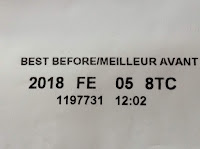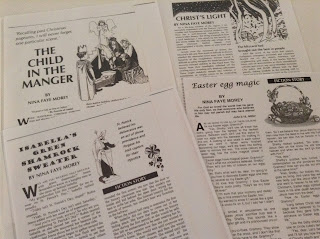Miss Burgoyne exuded enthusiasm as she taught our high school Creative Writing class. Her own creative spirit shone in the unique assignments she gave out. Her exuberance for writing was contagious, sparking the creative thinking of her students. Most memorable was writing, performing and filming our own short drama under the direction of a professional script writer, who happened to be serving time for fraud in a nearby minimum security prison. Somehow Miss Burgoyne was able to wangle a pass for him to show up several times a week in her classroom to give us the benefit of his expertise ˗˗ in script writing, not fraud.
Miss Burgoyne communicated a passion for creative writing to many aspiring young authors. She expected us to learn the techniques of the craft, instructing us in how to use proper writing tools to improve our work. By reading the work of successful writers, she taught us about style and voice. What impacted me most was the writing assignments, critiqued by our peers and our supportive teacher. Because of her mentoring I realized that I had the potential to call myself a writer someday.
Many of us have decades of writing experience under our belts, each page a hard-won step forward in our journey as a writer. We have a responsibility to pass on what we have learned from our successes and failures to the next generation of writers. Getting started on the writing path can be daunting, even discouraging when faced with the challenges of developing a unique voice, laboring over manuscripts, and navigating the publishing world. Good advice is more palatable when sweetened with encouragement and positive critique. As wise Solomon wrote, “For sound advice is a beacon, good teaching is a light, moral discipline is a life path.” (Prov. 6:23 The Message)
More than receiving our advice, those coming after us look to our writing experience as an example. What worked for us is noted, perhaps even emulated by future writers. That is a weighty expectation, however, as writers who believe in Christ, there is more to it than just demonstrating how to write. They are observing how our writing reflects our faith. Not only are we writing mentors, we are also called upon to live out our faith in Christ through our writing.
If a novice Christian writer were to ask you for the singular most important lesson you have learned in your writing journey, what would it be? There is no right answer, for each of us is on a unique path. After distilling the essence of my own journey, I would tell the young writer, seek God’s guidance, then write honestly from your heart.
In the most recent edition of FellowScript, YA Editor Mary Anne Focht, shares how writing has helped her through the death of her brother.
“I know my life without InScribe would not have been as successful without all the prayers and encouragement over the years. I am thankful for how He (God) keeps turning me back to Him through the words I write.”1
Mentioning young author, Joshua Heath, she credits his love for InScribe in helping her be enthusiastic about joining. She includes Heath’s writing timeline, beginning with him meeting InScribe members Ruth Snyder, Bobbi Junior, and Tracy Krauss and deciding he wanted to be an author like them.
I am proud to be a member of a writer’s fellowship that values and invests in young writers just starting on their journey. When we nurture their gift, we are entrusting them to carry the torch of faith-based writing forward after we lay down our pens.
You yourselves are our letter, written on our hearts, known and read by everyone. You show that you are a letter from Christ, the result of our ministry, written not with ink but with the Spirit of the living God, not on tablets of stone but on tablets of human hearts. (2 Cor. 3:2-3 NIV)
1 FellowScript August 2023 p. 26

















